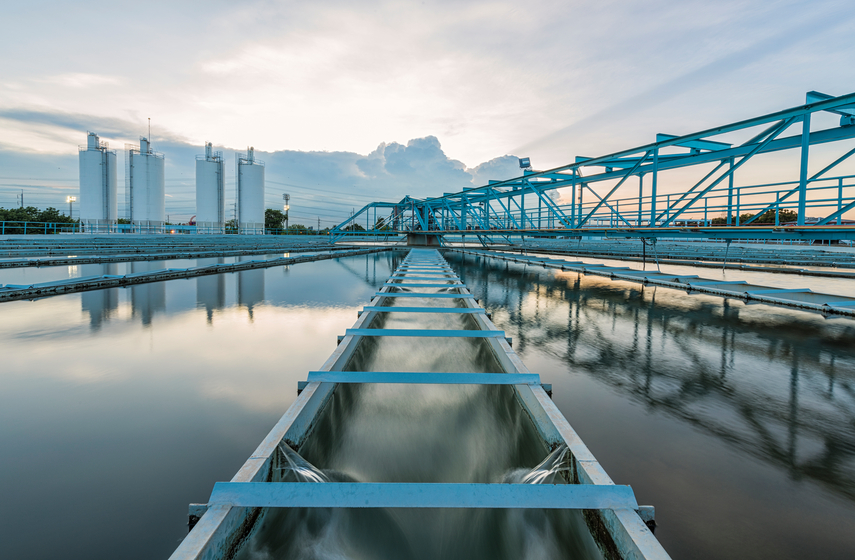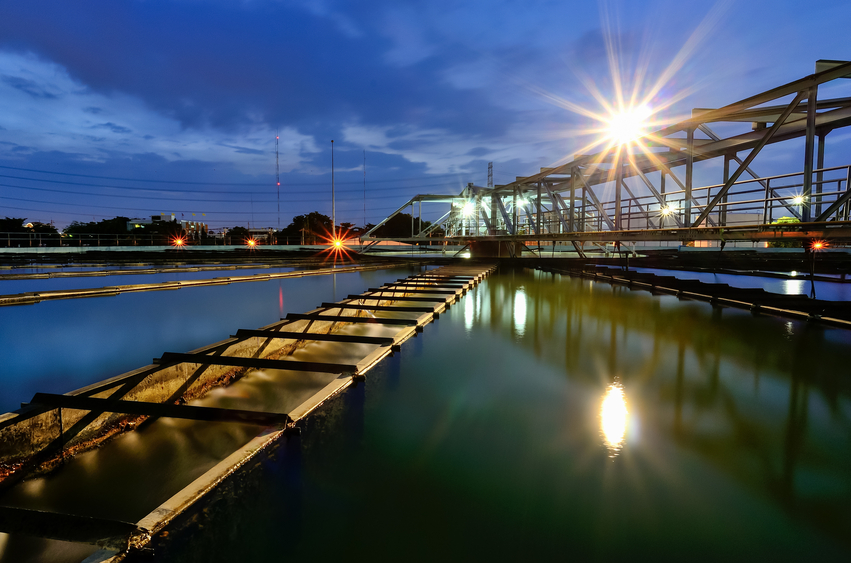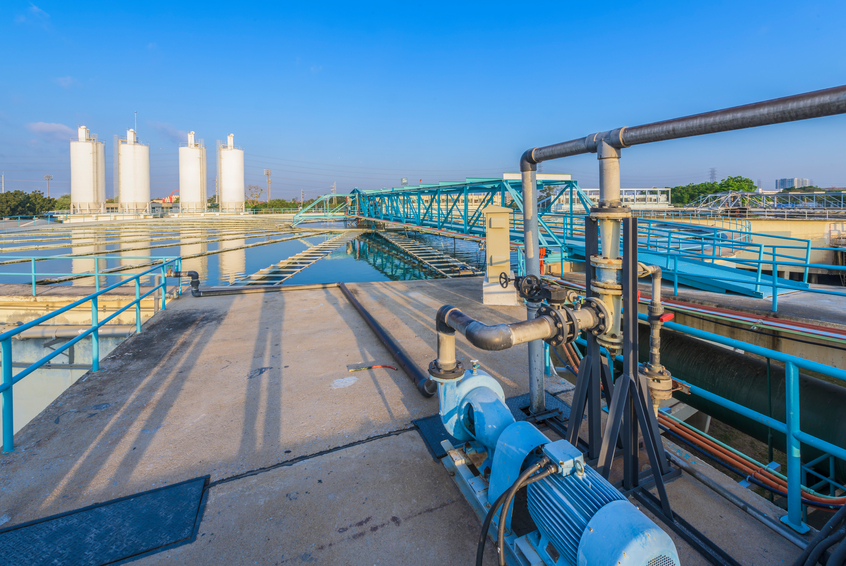Saskatchewan Chemical 30 PDH Discount Package
An Introduction to Treatment of Closed Industrial Water Systems (H03-005)
Biological Wastewater Treatment II - MBBR Processes (C04-045)
Fundamentals of Chemistry (H05-001)
UV Disinfection Systems for Drinking Water - Overview (C04-006)
Management of Onsite and Clustered Wastewater Treatment Systems (C07-013)
Reactor Water Chemistry (H03-001)
General Principals of Engineering Ethics for Saskatchewan Professional Engineers (SK1-001)

This online engineering PDH course will introduce you to methods for cleaning industrial water systems with chemicals. You will learn about pre-operational cleaning which is performed to prepare water-contacted metal surfaces to receive chemical treatment to provide protection from scale, corrosion and microbiological growth. You will also learn about remedial cleaning to restore water systems that have been fouled with scale, corrosion products and microbiological growth due to inadequate or ineffective water treatment. Examples of industrial water systems for which chemical cleaning are applicable are boilers, heat exchangers, cooling towers, and chillers.
Maintenance of an effective water treatment program is essential to minimize scale and corrosion problems in industrial water systems; however, scale and deposits will often form and require remedial cleaning. If not removed, these scale and water-caused deposits may impact the safety of operations personnel, interfere with heat transfer, and cause excessive damage to, or destruction of, the water-using equipment.
This 3 PDH online course is intended for industrial, chemical and mechanical engineers, as well as, maintenance personnel and construction professionals interested in learning about the use of chemicals for cleaning industrial water systems and equipment such as boilers, heat exchangers, cooling towers and chillers.
This P.Eng. continuing education course is intended to provide you with the following specific knowledge and skills:
- Learning about pre-operational cleaning of new industrial water-using systems and equipment
- Learning about remedial cleaning of industrial water systems and equipment to restore them to optimal operating condition
- Learning about chemical cleaning methods that have largely superseded mechanical cleaning methods
- Learning about chemicals used for chemical treatment of industrial water systems
- Learning about the use of hydrochloric acid to remove carbonates scale with lesser amounts of phosphates, sulfates and silicates
- Learning about hydrochloric acid's limitations where stainless or galvanized steel is part of the system
- Learning about the use of sulfamic acid to remove scale from metal surfaces
- Learning about the importance of isolating equipment to be cleaned from other parts of the system using valves, rubber blankets, wooden bulkheads with seals, inflatable nylon or rubber bags, rubber sponge-covered plugs, or blind flanges and steel plates with rubber seals
- Learning about the recirculating cleaning process for boilers
- Learning about a circulating method for descaling smaller equipment that does not require heating
- Learning about the fill and soak method of chemical cleaning
In this professional engineering CEU course, you need to review the course document titled, "An Introduction to Chemical Cleaning of Industrial Water Systems".
Upon successful completion of the quiz, print your Certificate of Completion instantly. (Note: if you are paying by check or money order, you will be able to print it after we receive your payment.) For your convenience, we will also email it to you. Please note that you can log in to your account at any time to access and print your Certificate of Completion.

This online engineering PDH course presents best practices for treatment of closed industrial water systems used to provide heating, cooling, or both for buildings and industrial processes.
The term "closed water system" refers to a water system that is used to provide heating, cooling, or both for industrial processes or facilities. The system is sealed (closed), sometimes under pressure, and is not open to the atmosphere. No evaporation takes place and, with good operation, water is lost only minimally from the system.
In general, water treatment for closed systems is much easier than for open systems. Makeup water is needed only to replace seal leakage and other incidental leakage. Because of the small makeup water requirements of these systems, they require little chemical treatment, which can be added intermittently as needed. Once properly treated, the system water does not form scale and has little or no corrosion potential. Two main types of closed water systems are used at many installations: hot water closed heating systems and chilled water closed cooling systems.
This 3 PDH online course is intended for mechanical engineers and other design and construction professionals wanting an introduction to the technologies, equipment and operational practices for treatment of closed industrial water systems used to provide heating, cooling, or both for industrial processes or facilities.
This P.Eng. continuing education course is intended to provide you with the following specific knowledge and skills:
-
Learning about treatment of hot water systems
-
Learning about treatment of closed chilled water systems, brine systems, and glycol systems to supply cold or chilled water for cooling processes and air conditioning
-
Learning about treatment of diesel engine jacket cooling systems
-
Learning about water treatment programs for both closed hot water and closed chilled water systems to control corrosion and deposition of microbiological organisms
-
Learning about treatment of makeup water
-
Learning about corrosion control program options;
-
Learn how to implement sulfite-caustic, nitrite-azole, and polysilicate-azole treatment programs
In this professional engineering CEU course, you need to review the course document titled, "An Introduction to Treatment of Closed Industrial Water Systems".
Upon successful completion of the quiz, print your Certificate of Completion instantly. (Note: if you are paying by check or money order, you will be able to print it after we receive your payment.) For your convenience, we will also email it to you. Please note that you can log in to your account at any time to access and print your Certificate of Completion.

This online engineering PDH course provides a discussion and detailed examples of process design calculations for a single stage BOD removal MBBR (moving bed biofilm reactor) system, a two-stage BOD removal MBBR system, a single stage tertiary nitrification MBBR system, a two-stage BOD removal/Nitrification MBBR system a post-anoxic denitrification MBBR system and a pre-anoxic denitrification MBBR system.
This course is Part II of a three-part series. The other two courses in this Biological Wastewater Treatment series are about activated sludge processes (Part I) and Membrane Biofilm Reactor (MBR) processes (Part III).
The MBBR process is an attached growth process that uses plastic carriers to provide a surface on which biofilm grows. The MBBR process doesn’t require sludge recycle, because the biomass remains in the system attached to the plastic carriers. The required reactor size for an MBBR process is typically significantly smaller than that for an activated sludge process treating the same wastewater flow, or for other common attached growth processes like the RBC or trickling filter. It can be used for BOD removal, biological nitrification, biological denitrification, and biological phosphorus removal.
This 4 PDH online course is intended primarily for civil engineers, environmental engineers, and chemical engineers. After completing this course you will be familiar with the general components and configuration of an MBBR wastewater treatment process and be able to make typical process design calculations for an MBBR process.
This P.Eng. continuing education course is intended to provide you with the following specific knowledge and skills:
- Understanding the differences between attached growth and suspended growth biological wastewater treatment processes
- Familiarizing with the components of and the general configuration of an MBBR wastewater treatment process
- Calculating the loading rate of a wastewater constituent to an MBBR process (in lb/day and g/day) for a specified wastewater flow rate and constituent concentration
- Calculating the required carrier surface area for an MBBR wastewater treatment process for a specified SALR and loading rate.
- Calculating the required MBBR tank volume for specified carrier surface area, carrier specific surface area and carrier fill %
- Calculating the liquid volume in an MBBR tank for known tank volume, carrier volume and carrier % void space
- Calculating the BOD, NH3-N, or NO3-N removal rate for known values of the surface area removal rate (SARR) and design carrier surface area
- Calculating an estimated effluent BOD, NH3-N or NO3-N concentration based on known values of the appropriate loading rate, estimated removal rate, and design wastewater flow rate
- Learning how to make process design calculations for a post-Anoxic denitrification MBBR process, including required tank sizes, estimated effluent concentrations, alkalinity requirement and carbon source requirement
- Learning how to make process design calculations for a pre-Anoxic denitrification MBBR process, including required tank sizes, estimated effluent concentrations, alkalinity requirements
MBBR BOD Removal Nitrification_US units (395 KB)
Upon successful completion of the quiz, print your Certificate of Completion instantly. (Note: if you are paying by check or money order, you will be able to print it after we receive your payment.) For your convenience, we will also email it to you. Please note that you can log in to your account at any time to access and print your Certificate of Completion.

This online engineering PDH course addresses the basics of chemistry. It introduces concepts on the atomic structure of matter. It also discusses the periodic table and the significance of the information in a periodic table. Furthermore, it explains chemical bonding, the laws of chemistry, and chemical equations.
This 5 PDH online course is applicable to chemical and environmental engineers, design and construction personnel, technical staff and facility operators who are interested in gaining a better understanding of the basics of chemistry.
This P.Eng. continuing education course is intended to provide you with the following specific knowledge and skills:
- Characteristics of atoms
- The periodic table
- Chemical bonding
- Chemical equations
- Acids, bases, salts and pH
In this professional engineering CEU course, you need to review Module 1, "Fundamentals of Chemistry" of the Department of Energy Publication DOE-HDBK-1015/1-93, "Chemistry".
Upon successful completion of the quiz, print your Certificate of Completion instantly. (Note: if you are paying by check or money order, you will be able to print it after we receive your payment.) For your convenience, we will also email it to you. Please note that you can log in to your account at any time to access and print your Certificate of Completion.

This online engineering PDH course provides an overview and background of technical information on the application of ultraviolet light for the disinfection of drinking water by public water systems. This overview includes a description of basic chemical and physical principles, the components of UV equipment, and performance monitoring for UV facilities. The overview material intended to present generally accepted facts and research results related to UV disinfection. The material covers many aspects for consideration when implementing a UV disinfection system.
This 4 PDH online course is intended for wastewater treatment engineers and environmental professionals seeking to gain an understanding of UV disinfection technologies. The course will also be beneficial for a student with basic knowledge of water treatment design and is interested in learning about how UV disinfection is now being applied as a disinfection alternative for municipal water supply systems. It is also an excellent overview for those professionals working in the field of water treatment.
This P.Eng. continuing education course is intended to provide you with the following specific knowledge and skills:
- Learning the background on drinking water treatment
- Understanding UV disinfection properties and mechanisms
- Understanding the components and performance of various types of UV systems
- Learning the accepted facts and research results relating to UV disinfection
- Knowing the support information for UV disinfection consideration
In this professional engineering CEU course, you need to review Chapter 2, "Overview of UV Disinfection" of the EPA Guidance Manual EPA 815-R-06-007, "UV Disinfection Guidance Manual for the Final Long Term 2 Enhanced Surface Water Treatment Rule, November 2006".
Upon successful completion of the quiz, print your Certificate of Completion instantly. (Note: if you are paying by check or money order, you will be able to print it after we receive your payment.) For your convenience, we will also email it to you. Please note that you can log in to your account at any time to access and print your Certificate of Completion.

This online engineering PDH course provides an overview of key considerations for developing or enhancing management programs for decentralized wastewater treatment systems.
One in every four households in the United States relies on an individual onsite or small cluster system to treat wastewater. In far too many cases, these systems are installed and largely forgotten – until problems arise. On the other hand, EPA concluded in its 1997 Report to Congress that “adequately managed decentralized wastewater systems are a cost-effective and long-term option for meeting public health and water quality goals, particularly in less densely populated areas.”
The key to achieving effective performance of decentralized sewage treatment systems from the simplest “box and rocks” septic tank and drainfield system to the most complex treatment and dispersal units; is an effective management strategy. This strategy must consider several critical elements such as planning, site conditions, risk factors, system design, and operation and maintenance, all of which comprise a management program.
This 7 PDH online course is applicable to civil, environmental and chemical engineers, sanitarians, and others seeking an understanding of Management of Onsite and Clustered Wastewater Treatment Systems.
This P.Eng. continuing education course is intended to provide you with the following specific knowledge and skills:
- Introduction to the management of onsite and clustered wastewater treatment systems
- Relevant of the management guidelines to other water programs
- Description of management models
- How to apply the management models
Upon successful completion of the quiz, print your Certificate of Completion instantly. (Note: if you are paying by check or money order, you will be able to print it after we receive your payment.) For your convenience, we will also email it to you. Please note that you can log in to your account at any time to access and print your Certificate of Completion.

This online engineering PDH course describes the chemical measures taken to retard the corrosion often found in water systems. It also addresses the consequences of radioactivity on facility cooling water systems.
Radiation synthesis is a process that takes place in the reactor coolant system. This phenomenon is limited to the reactor coolant system because of the high flux (radiation) levels that exist in the core region and further complicate chemistry control of the reactor plant.
This 3 PDH online course is applicable to chemical engineers, design and construction personnel, technical staff and facility operators who are interested in gaining a better understanding of the reactor water chemistry.
This P.Eng. continuing education course is intended to provide you with the following specific knowledge and skills:
- Understanding water chemistry parameters
- Understanding the effects of radiation on water chemistry
In this professional engineering CEU course, you need to review Module 3, "Reactor Water Chemistry" of the Department of Energy Publication DOE-HDBK-1015/1-93, "Chemistry".
Upon successful completion of the quiz, print your Certificate of Completion instantly. (Note: if you are paying by check or money order, you will be able to print it after we receive your payment.) For your convenience, we will also email it to you. Please note that you can log in to your account at any time to access and print your Certificate of Completion.

This online engineering PDH ethics course is (1) the study of moral issues and decisions confronting individuals and organizations involved in engineering and (2) the study of related questions about moral conduct, character, ideals and relationships of peoples and organizations involved in technological development (Martin and Schinzinger, Ethics in Engineering).
This course will address the principles of engineering ethics that every engineer is expected to live by when practicing their profession. It will also present unique ethical case studies randomly selected to demonstrate ethical challenges for professional engineers and alternatives to address these challenges.
This 1 PDH online course is applicable to Professional Engineers licensed in the Province of Saskatchewan and who are required to demonstrate continuing professional competency in engineering ethics as a condition of their license renewal. For each renewal period, every licensee must complete at least one (1) professional development hour relative to the principals of professional responsibility, conduct and ethics.
This P.Eng. continuing education course is intended to provide you with the following specific knowledge and skills:
- Understanding the definition of engineering ethics
- Learning how to hold the utmost safety, health, and welfare of the public when practicing your profession
- Familiarizing with the conditions to issue public statements
- Gaining a general overview on how to represent each employer or client as a faithful trustee
- Learning how to build your professional reputation on the merit of your services
- Understanding professional ethical practices through presenting realistic case studies
- Learning how to handle proprietary information and intellectual property rights
Upon successful completion of the quiz, print your Certificate of Completion instantly. (Note: if you are paying by check or money order, you will be able to print it after we receive your payment.) For your convenience, we will also email it to you. Please note that you can log in to your account at any time to access and print your Certificate of Completion.